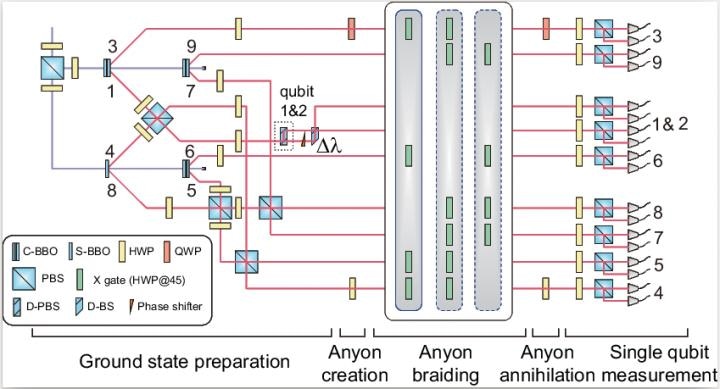Mar 26 2019
It is a well-known fact that anyons are the basis for topological quantum computation as well as error correction, in which the topological aspect of anyonic braiding is one among the many significant aspects that leads to fault tolerance. With additional qubits to control, scientists will be able to investigate further.
 (Image credit: LIU Chang)
(Image credit: LIU Chang)
Now, a research team, headed by Professors PAN Jianwei and LU Chaoyang of University of Science and Technology of China, has effectively developed the biggest planar code platform to date, with the help of photons, and for the first time, has revealed path-independent characteristic in an optical system.
Using spontaneous parametric down-conversion and interference, the researchers initially produced the eight entanglement photons. Among these, a photon is encoded with path and polarization, ultimately producing the nine qubits anyons models.
The team subsequently carried out braiding operations on the anyons. As a result of extra qubits, the platform includes lattices that are sufficient for demonstrating path-independent trait. The system’s phase offset will not change if two operations have topologically equivalent paths. When this phase offset was measured, it was possible to observe path-independent property in the system.
The latest study serves as a platform for mimicking the braiding operations with linear optics. This will allow scientists to perform more challenging experiments on the features of anyonic statistics in the coming days.
The results of the study have been reported in Optica.